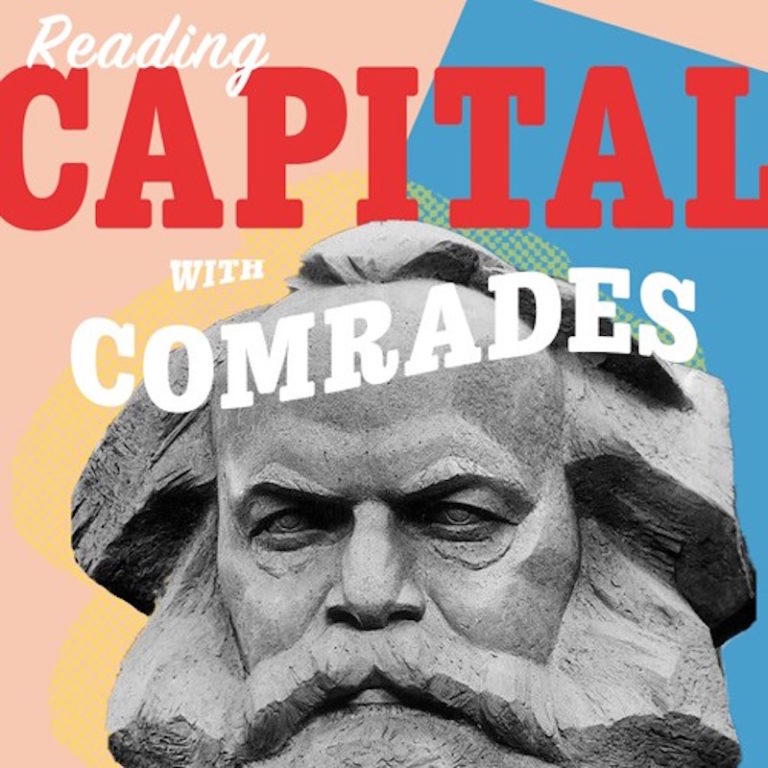
Listen to the podcast on Liberation School, Spotify or Soundcloud!
Marx published the first volume of Capital in 1867 after pouring over a decade of his life into writing it and another decade researching political economy. The book is more than an endurance challenge or a purely intellectual milestone. “Reading Capital with Comrades,” a new podcast from Liberation School, demonstrates that understanding the theoretical basis of Marxism is crucial for organizers and revolutionaries who want to move beyond isolated struggles and reforms within capitalism. Without revolutionary theory there can be no revolution.
“The point of the series is to make Capital accessible to broad numbers of workers and organizers,” said Derek Ford, one of the cohosts. “I hope more organizers read the book so they can more deeply understand capitalism, its history and its present, in order to better establish a revolutionary Marxist pole within the struggles they’re engaged in.”
In the introduction of the series, co-host Patricia Gorky notes the particular importance of the podcast’s revolutionary socialist perspective, which connects the text to ongoing struggles and contemporary history. The intro features mainstream headlines that underscore the disastrous economic impact of COVID-19, where the owning classes made billions of dollars while millions of workers have suffered catastrophe.
“Far from being an inaccessible, dusty text, Capital provides a solid foundation for revolutionaries as we build the struggle for socialism today,” said Gorky. “Our goal for this podcast is to help workers equip themselves with this ideological weapon, chapter by chapter.”

Marx’s work spans 33 chapters, which the podcast breaks into 12 episodes. The podcast delves into both the content and context, diving in to Marx’s asides and references, providing listeners with the relevant background to understand Marx’s perspective. Ford and Gorky break up the denser points and field common questions, which enables listeners to continue making progress.
Capital is a notoriously dense work, as Marx himself acknowledged. However, he argues it is worth the effort, and this podcast helps make it more digestible. Both hosts also encourage listeners to push through the difficult early chapters, and throughout pay attention to the different ways Marx envisions the communist future, the relationship between reform and revolution, the role of the state, and more.
Other Marxist scholars have suggested starting with later sections before returning to the beginning, but Ford makes the case for Marx’s printed order: “Marx begins with an isolated concept and extends outwards, which helps us apply the concepts to different situations beyond that in England, which is the case study for the book.” Yet the focus on England is still important, as it helps draw out how the development of capitalism in England depended on and accelerated colonialism and slavery.
The podcast was produced and edited by Mike Prysner, mixed by Nic de la Riva, while Anahedron created the accompanying music. The audio is clear and well paced, and the scoring helps keep the listener focused. Original artwork by Nathan Schmidt accompanies each episode.
“The problems that our class faces are many: housing, education, jobs, ending war, addressing climate change and more. All of these problems can be solved. We have the technology, the knowledge and even much of the physical infrastructure to start tackling these crises,” Gorky notes. “Yet we cannot begin to address these problems scientifically until we understand the root of each of these problems: capitalist production and the class relations they spawn.”
You can find the podcast on Liberation School, Spotify, Soundcloud,and other streaming platforms.






